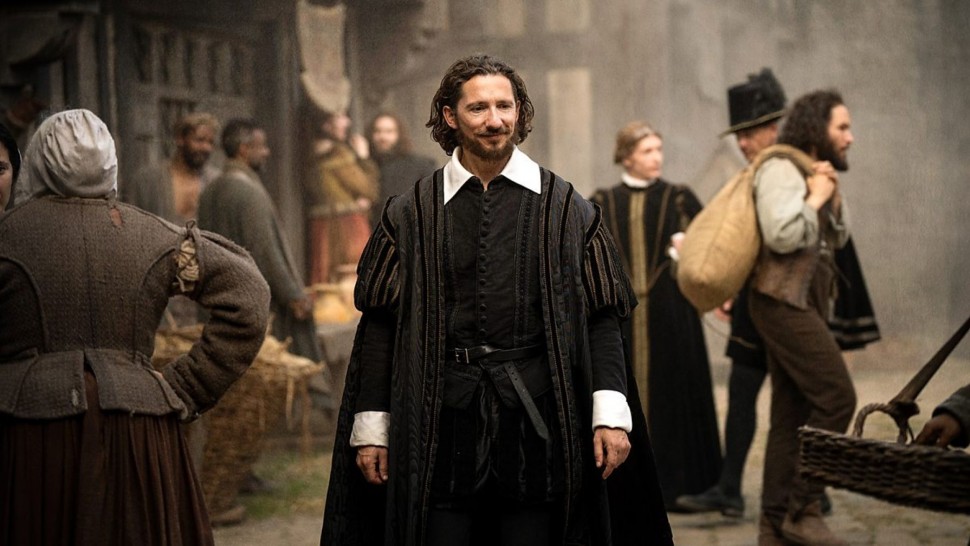The BBC’s three-part documentary Shakespeare: The Rise of a Genius blends historical insight with finely crafted dramatic reconstruction, offering a fresh and accessible portrait of the world’s most celebrated playwright. Charting his journey from the son of a Stratford glove-maker to a towering figure of the London stage, the series captures both the sweep of history and the human story within it.
Structured around three defining chapters of Shakespeare’s life, the narrative follows his professional triumphs and personal trials against the backdrop of Elizabethan and Jacobean England—a period alive with political intrigue, cultural ferment, and shifting fortunes. The filmmakers weave together interviews with leading scholars, historians, and actors, each contributing perspectives that illuminate different facets of his life and work.
The dramatizations are among the production’s greatest strengths. Rich in period detail and atmospherically shot, they create a believable vision of 16th-century London’s vibrant yet precarious theatrical world, bringing the streets, playhouses, and characters of the era into vivid focus. The actor portraying Shakespeare stands out, embodying the playwright’s ambition, creativity, and personal burdens without a single spoken line—a performance rooted in expression, gesture, and presence.
The documentary’s greatest achievement lies in its immediacy: it makes Shakespeare feel not like a distant icon, but a living, breathing figure whose struggles and aspirations still resonate. That said, the series occasionally treats speculation as certainty, presenting disputed moments in Shakespeare’s life with more confidence than the historical record supports. While these creative liberties are acknowledged in passing, they may blur the line between fact and interpretation.
Even so, this is a minor quibble. Shakespeare: The Rise of a Genius is an engrossing, visually rich, and thoughtfully assembled production—one that deepens our understanding of the man behind the plays and reminds us why his work endures.
Afterword
With my review complete, I thought I'd add a quote from The Tempest, mentioned in the BBC documentary, that helps to illustrate the genius of Shakespeare.
 |
| Prospero - The Tempest |
Why is this genius?
When I took psychology, I remember reading often tedious textbooks written in a dull, artless style. Psych is supposed to be "scientific," so modern psychologists and psychiatrists talk the talk of science. At least, they try to sound neutral and scientific with carefully controlled, flat tones, apparently giving off an air of "objectivity." But that very stance is a collective, highly subjective agreement and choice among psychologists and psychiatrists—whether they realise it or not.
One of the topics I remember most is the "nature-nurture" debate. Most psychologists agree that we are composed of both nature and nurture. Rarely, however, in that mainstream debate do we hear about possible spiritual influences on the psyche---especially back in the 1980s when I was toiling away at my psych studies.
Enter Shakespeare, who in 1610, over 400 years ago, beautifully blends all three dimensions - nature, nurture, and spirit (with the use of the term "devil") into one unforgettable line. Shakespeare doesn't just blend, however. He distills and abstracts countless ideas into pithy passages that still resonate today.
Isn't that what so many brilliant individuals do? Take a lot of the stuff "out there" and remix it so almost anyone can understand and appreciate their artistry?
That's one definition of genius. And it applies not only to Shakespeare but to pioneering creators such as The Beatles, David Bowie, Pablo Picasso, Stanley Kubrick, and arguably those involved in Star Trek TOS.
What do you think?


Comments